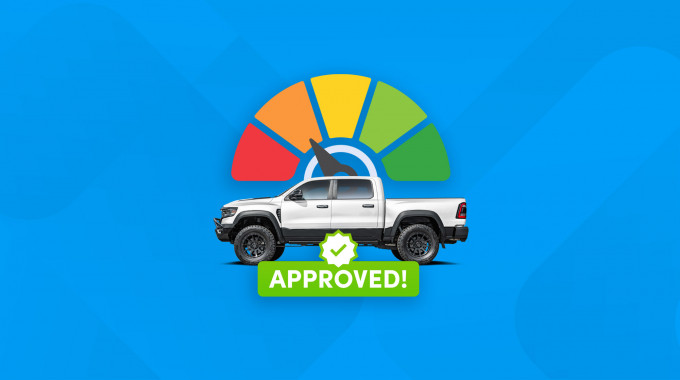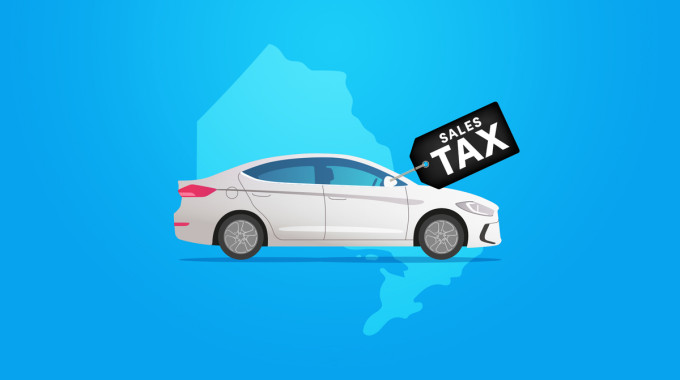
New Car Loans vs. Used Car Loans: What's The Right Decision For Me?
You want to buy a car soon. Maybe you’ve already visited dealerships and settled on a certain make and model, or it might be up in the air, depending on what you can be approved for. With so many new models on the market and competitive pricing on used cars, what’s the smart way to buy a car?
For some, choosing between a brand new vehicle and a pre-owned car is a no-brainer. In other cases, it’s all about what’s best for the budget. Let’s weigh the pros and cons of buying a new car versus a used car and how financing works for each.
Compare: new vehicles vs. pre-owned vehicles
Benefits of buying a new car
When you buy a new car, there’s a set of benefits that are quite attractive and obvious. Other perks are more subtle but just as important.
- You’re the first owner. When you buy a new car from the dealership, no one else has owned it, put it through its paces (aside from a spirited test drive, maybe), and otherwise had an opportunity to abuse it.
- You’re fully aware of its maintenance history. Since no one else has owned the car previously, there haven’t been any routine maintenance items or repairs skipped or delayed.
- You have the latest features. Who doesn’t love playing with the newest gadgets on the automotive market? From in-cabin tech like infotainment features to advanced driver-assist systems, you have access to the coolest toys when you’re looking at buying new cars.
- Full warranty coverage. The warranty on a car starts on the delivery date – that is, the day you sign the paperwork and pick it up from the dealership. For most cars, that’s three years or 60,000 kilometres of comprehensive warranty, whichever comes first, and five years or 100,000 kilometres on the powertrain warranty.
- Access to lower interest rates. If you have good credit and income to support it, you may be eligible for subvented interest rates. You’ve seen them advertised – rates as low as 0%.
Are you unsure what financing you're eligible for? Get pre-approved for your next car loan online.
Downsides of buying a new car
Of course, not everything that glitters is gold. Buying a new car comes with its own challenges too.
- It’s expensive to buy a new car. Whether you’re buying an entry-level economy car or a fully loaded luxury SUV, it’s costly to spring for a brand new car.
- Your car’s value depreciates immediately. The moment you drive a car off the lot, its value depreciates. Within the first year, most cars depreciate as much as 30%.
- There can be new model issues and recalls. Especially if the car you buy is in its first production year, there may be unexpected problems or safety recalls that require frequent visits to the dealership’s service department.
- There’s always something newer coming. Some people seem to get addicted to that new car smell and tend to change their vehicles often, like when a redesign or new model is released. That can leave you in a negative equity situation.
Benefits of buying a pre-owned vehicle
The used vehicle market is very robust in Canada and there are fantastic benefits to purchasing a used vehicle. Here are just a few reasons to choose a pre-owned car today.
- Used cars have a lower initial purchase price. Whether you’re looking at an older car or a model just a couple of months old, its purchase price is lower than the original window sticker would’ve said. You benefit because the previous owner absorbed the initial depreciation.
- They depreciate slower. A new car may depreciate up to 30% in its first year, but subsequent years are at a much slower rate – around 10% per year. So, your used car purchase will retain more of your financial investment.
- Many used cars carry the balance of warranty. When you’re shopping for a used car, dealership lots are chock full of vehicles under three years of age that have bumper-to-bumper warranty still in effect. And others that are slightly older or have a little higher mileage may still have powertrain warranty, protecting your purchase.
- Newer pre-owned models are well-equipped. Unless you’re looking at a winter beater or an entry-level model, most pre-owned vehicles have the power features you want, good safety systems, and infotainment options for your convenience.
- You can get more car for your money. If you have a set budget, you might be able to find a used car with a higher trim than a new car for the same price. In some instances, you could find yourself able to buy an excellent certified pre-owned luxury car at a bargain price.
Downsides of buying a used vehicle
As with everything, there are things to be aware of when buying a used car.
- You may not know the complete vehicle history. It’s a good idea to ask for a vehicle history report when you’re buying a used car to discover any abnormalities that may have been reported. Most dealerships will have this report ready to inspect for any interested buyers. On the other hand, private sellers may not.
- The warranty period is shorter, obviously. Since the warranty began with the original owner there’s less coverage to protect your purchase, although extended warranties or service contracts are available through dealerships.
- Wear and tear have begun. It isn’t new anymore, so brakes and tires have begun to wear down already. Be mindful that some maintenance may be coming due soon.
- It may not be the newest model available. As a pre-owned car, there could be a newer body style already on the market with features you don’t have.
Compare: New Car Loans vs. Used Car Loans
And what about the financing process? There certainly are differences between new and used cars when it comes to arranging the terms of your agreement. Here’s a breakdown of the benefits and drawbacks for financing a new car versus a pre-owned car.
Pros of a new car loan
The automotive industry makes it enticing to buy a new car. Interest rates are often subvented, meaning they’re lower than the posted bank rate, so you’re paying less interest over the period you’re paying off your car. It should be noted that you typically need to have a great credit score to get approved for such low interest rates.
Cons of a new car loan
However, it’s easy to get caught in the losing end of new car financing. It takes two to three years of car payments for most buyers to reach a point of positive equity in their new car loan.
Have you heard of being ‘upside-down’ in your car? That’s when you have negative equity, or owe more on your loan than your car’s current value.
Unless you’re able to put several thousand dollars down as a down payment on your new car, it can be a dangerous position to be in. If your new car is written off, you’d owe the bank more than you’d receive as your insurance settlement. You should definitely consider GAP insurance to cover this possibility.
Pros of used car loans
Today, certified pre-owned vehicles are also eligible for special financing rates from certain manufacturers like Toyota and BMW. These rates make it affordable to buy a used car – even more so than a new car. Even if you don’t qualify for the lowest rate due to credit issues, the lower initial purchase price still makes buying a pre-owned car loan very affordable.
And used car loan terms can be as long as a new car – up to 84 months or longer.
Because the depreciation has slowed, used car buyers will often be able to start out in a positive equity situation or reach that point in months, not years.
And if being protected against unexpected expenses like car repairs is important, extended warranties are available and can be tailored to your needs. It’s easy to add this feature to most used car loans too.
Cons of used car loans
If you decide to choose a used car loan, always go through a reputable dealership. Avoid ‘buy here pay here’ lenders who don’t report to the credit bureaus, meaning your credit score doesn’t benefit from your monthly loan payments.
Because some lenders don’t offer subvented rates, always check the interest rate that you’ve qualified for. It can make sense to get pre-approved for a car loan before visiting the dealership in person.
Can I finance an older car?
The price might be right or it could be the car that ticks all the boxes on your list. A very old used car could be attractive, but can you get approved for an old car loan?
For a lender, there isn’t much about an older car that makes the loan safe for them. Vehicles over ten years old especially are in the downswing of their lifecycle. One major mechanical problem could spell the end for the car, and they may not get the money owed on the loan.
Select lenders may entertain a loan for an old car, but you’re likely going to be limited to a very short term and a higher interest rate than a vehicle just a few years old. And since most loans in this realm are under $7,000 or so, they may not meet the criteria for an auto loan in the first place. A personal loan might be the best way to finance an older car.
The Takeaway
While it’s nice to own a shiny new car, the fact is that 60% of car buyers choose a pre-owned vehicle loan for a reason: it’s more affordable. A great way to build credit, used car loans help insulate you from an upside-down situation and keep more of your money in your own pocket.
Get pre-approved for your car loan today!
With a pre-approval you can shop with confidence knowing exaclty what you can afford. Canada Drives can help you get pre-approved for a car loan today, even if you have bad credit.







